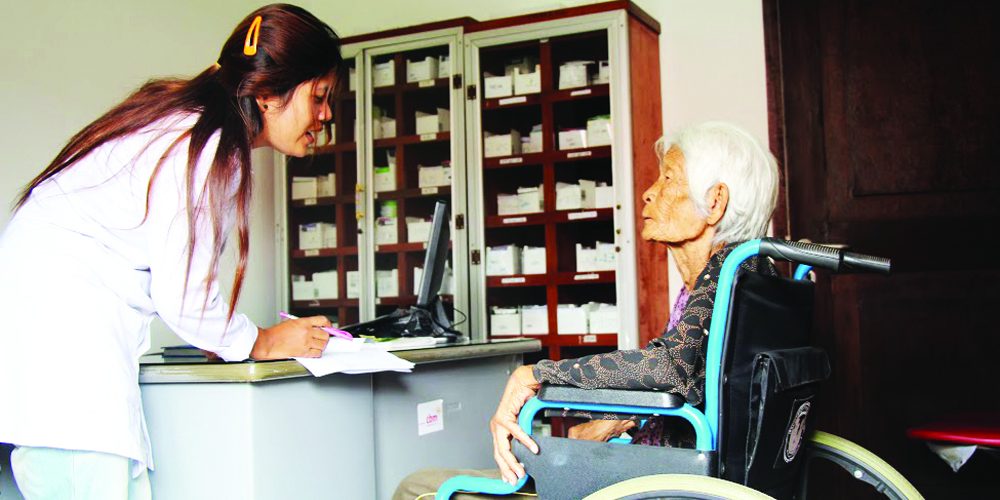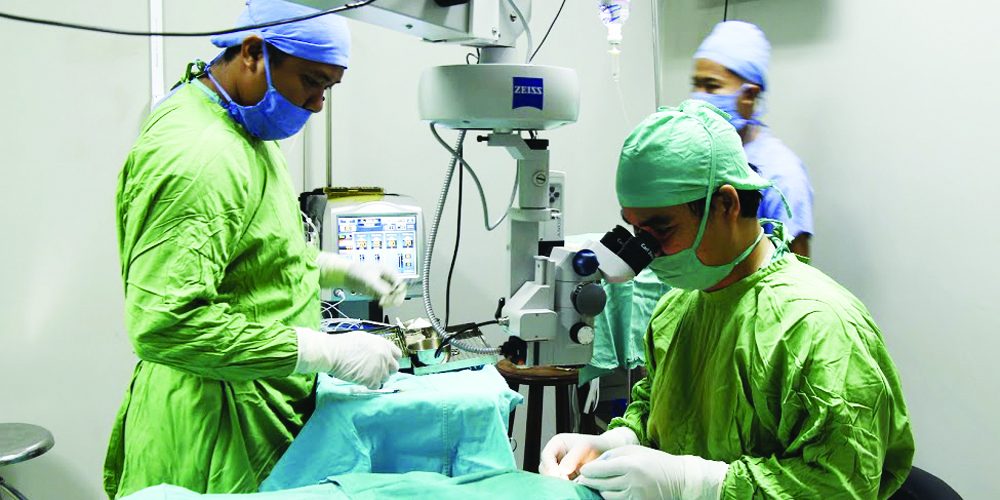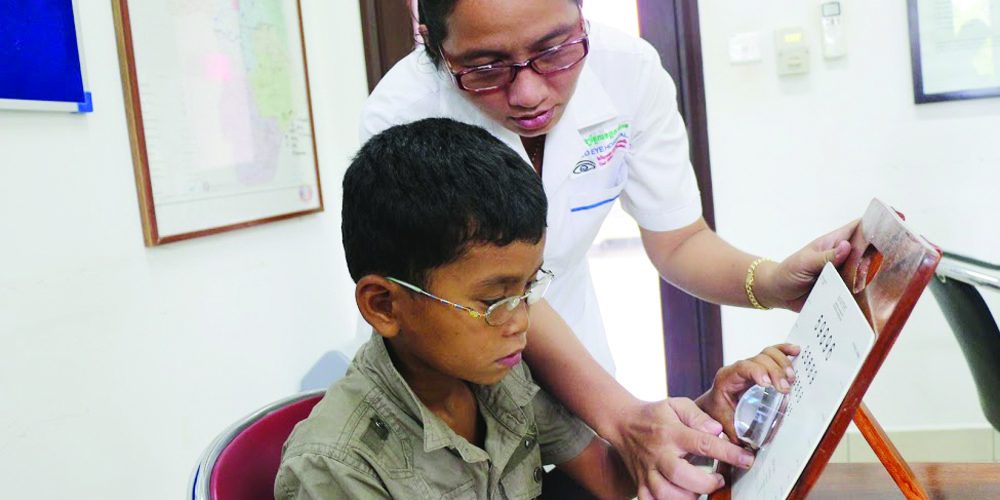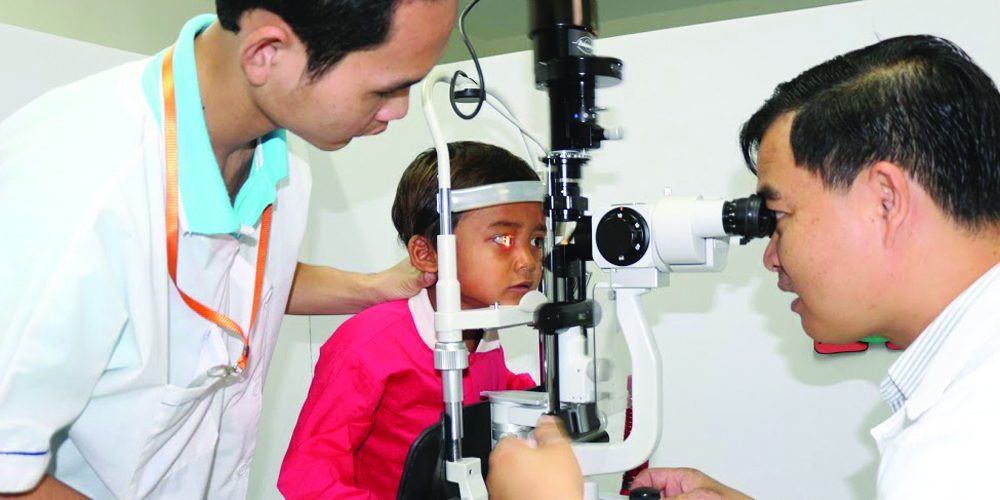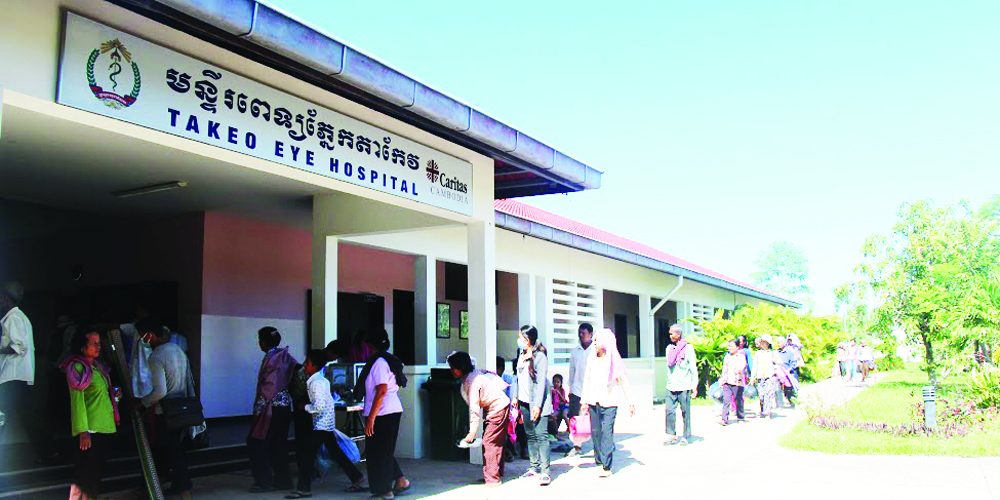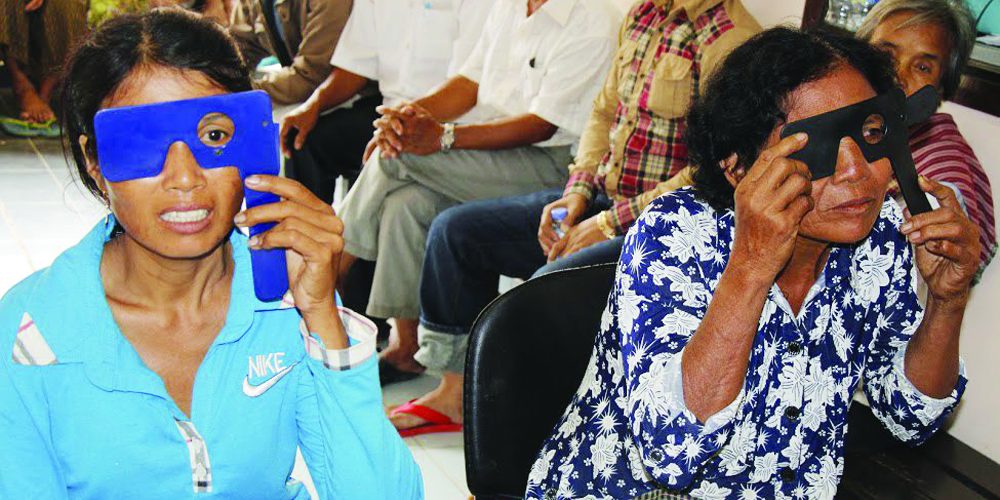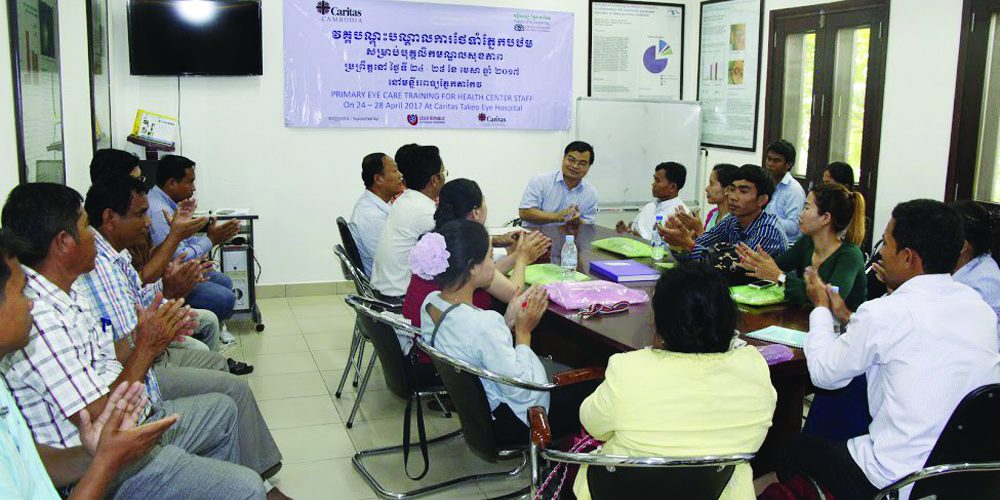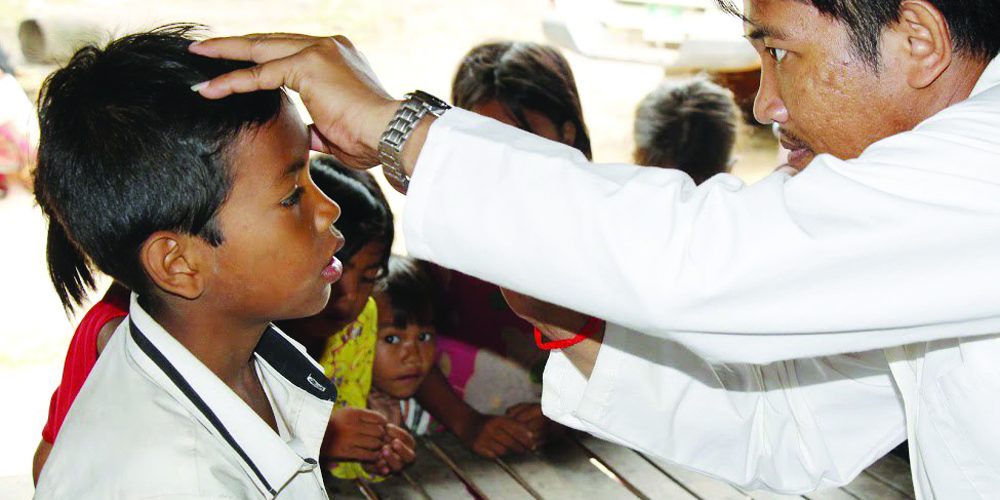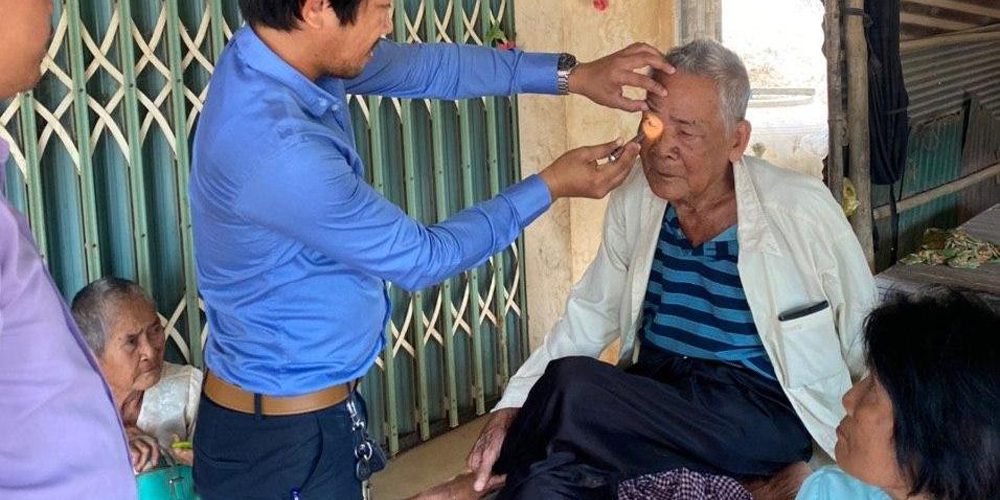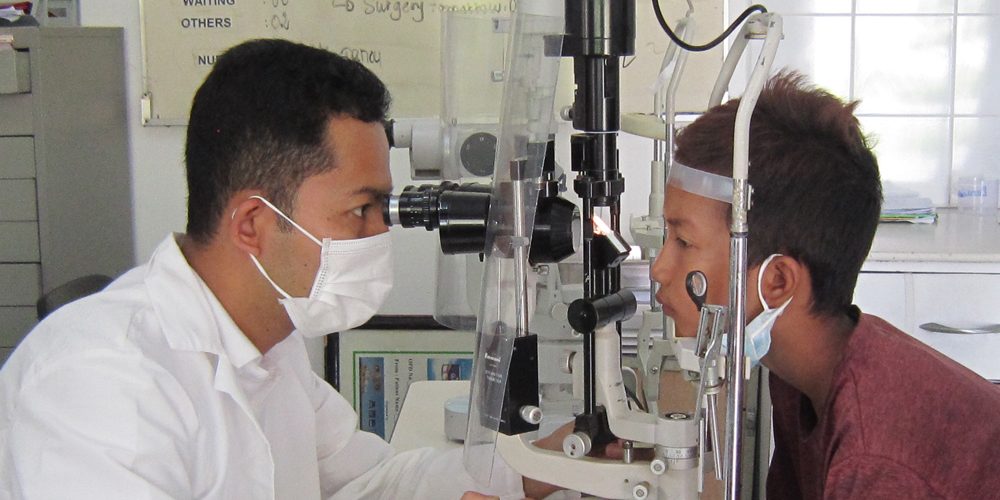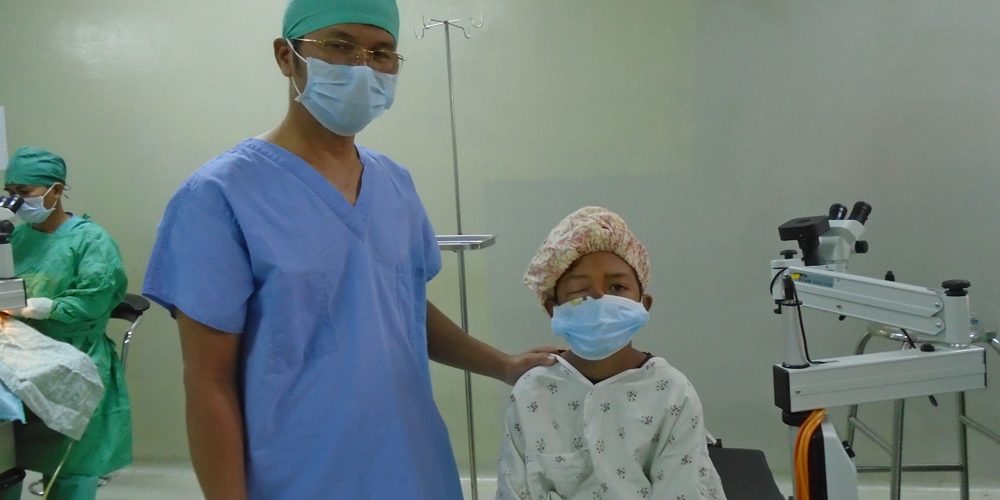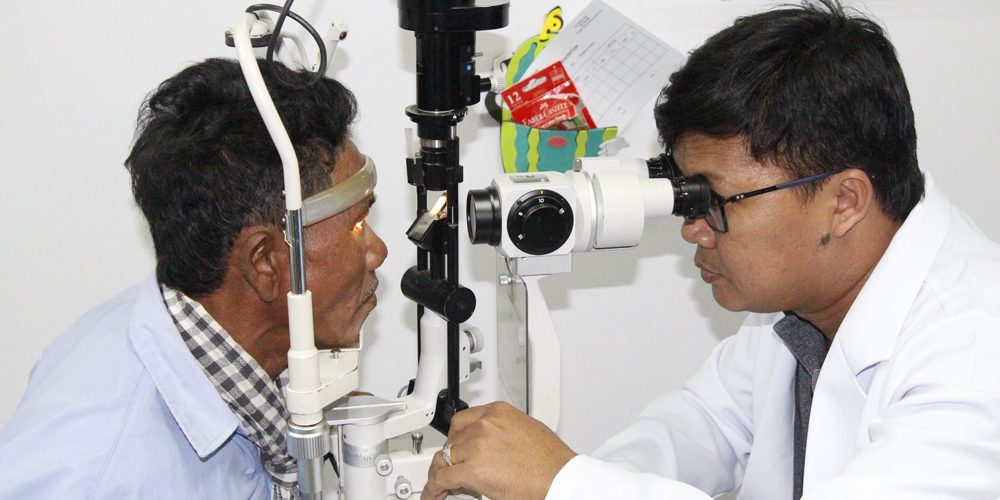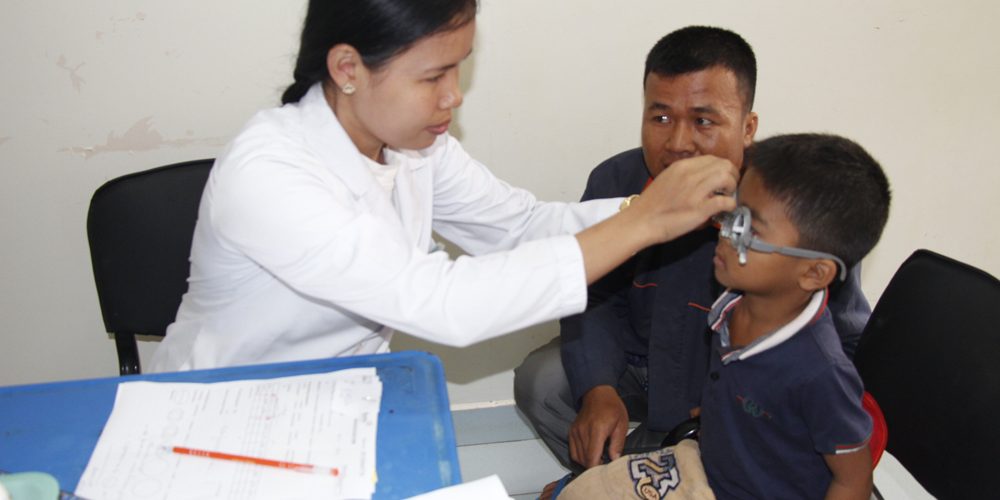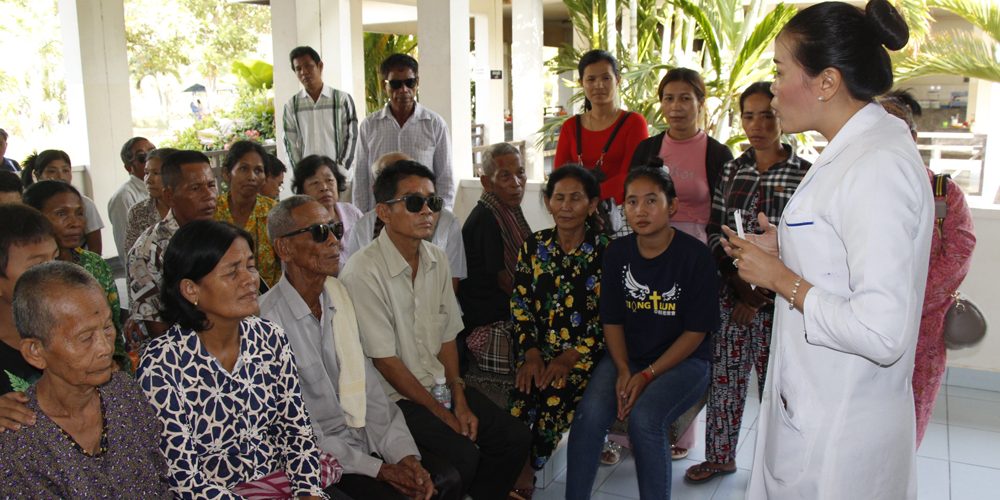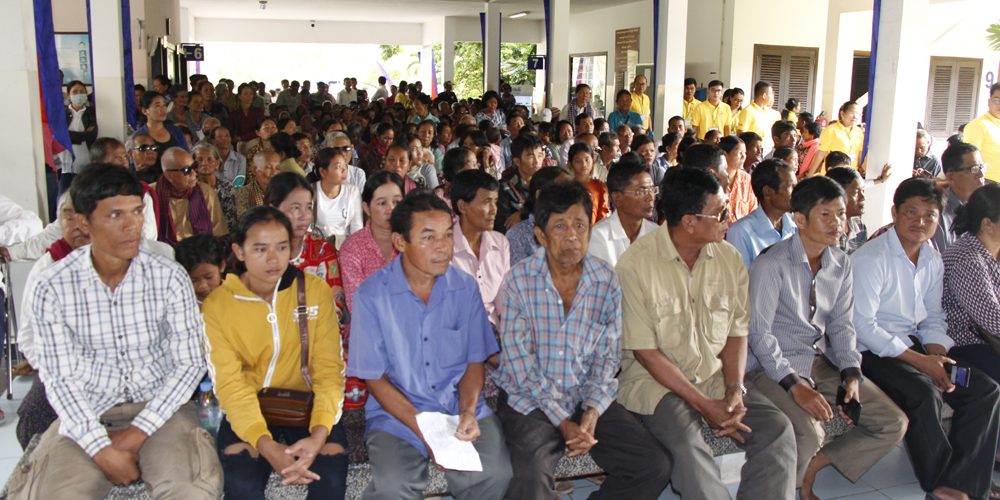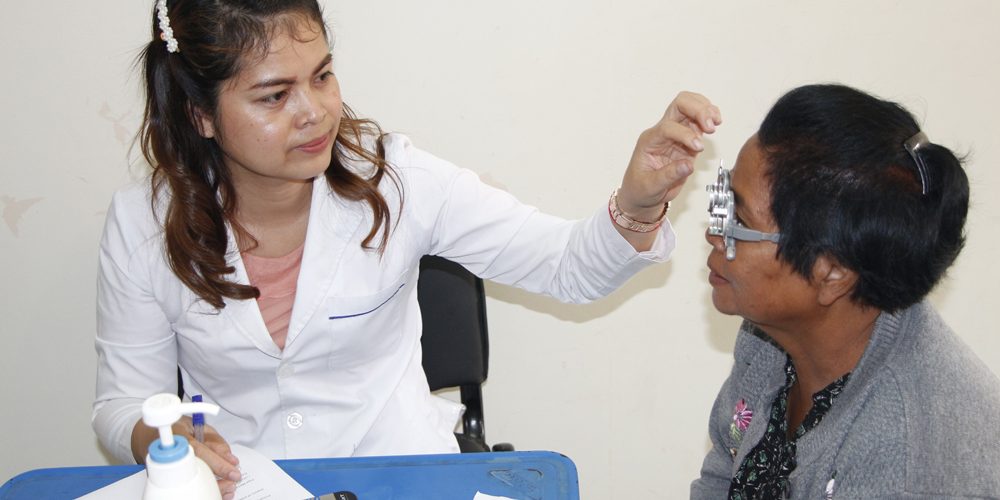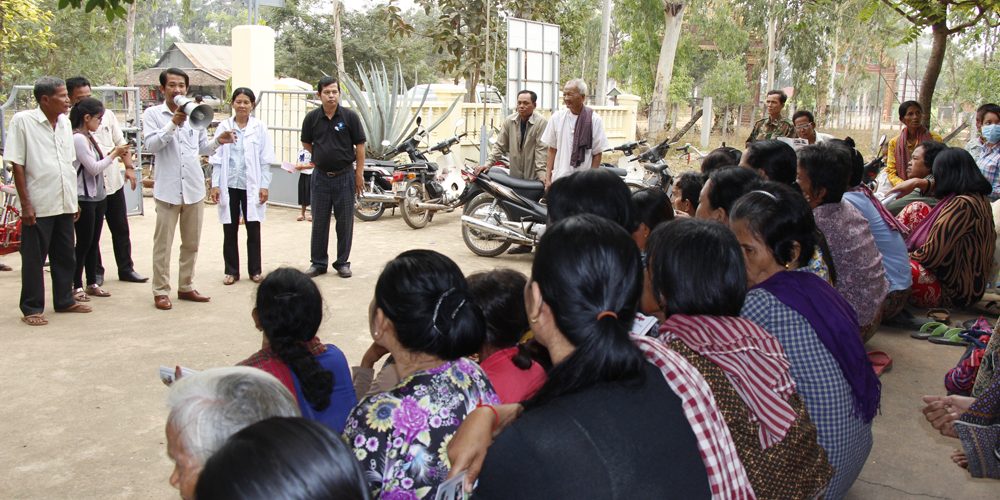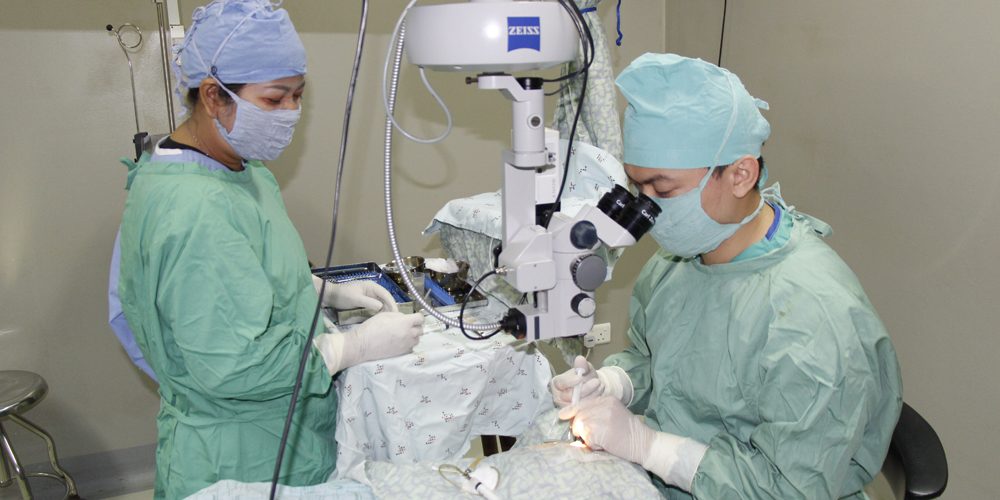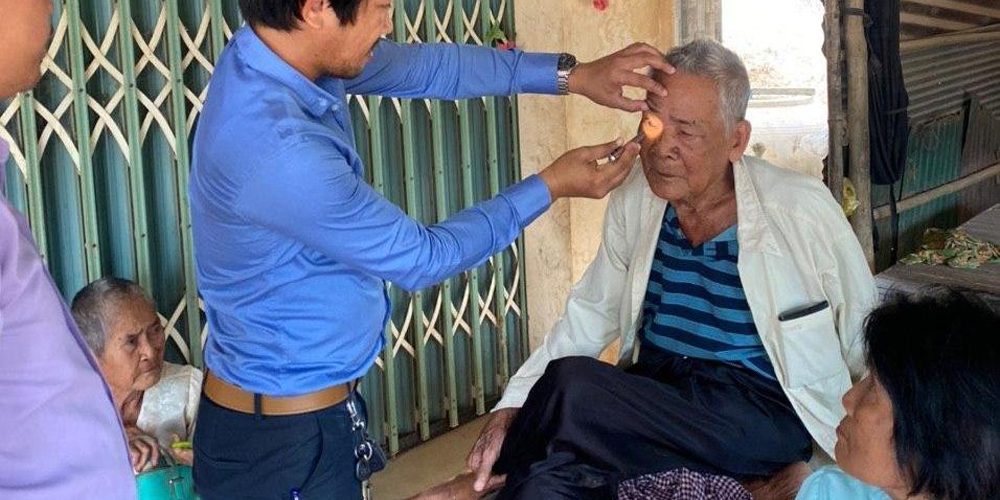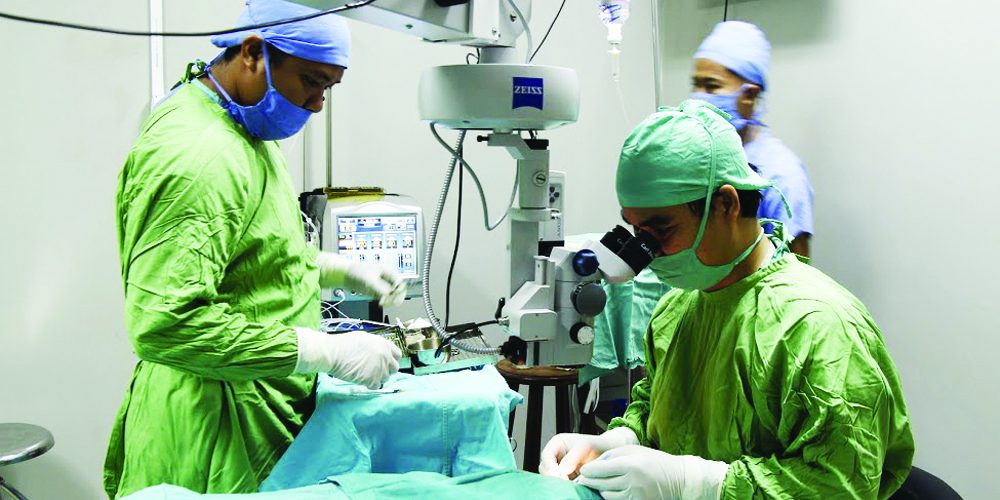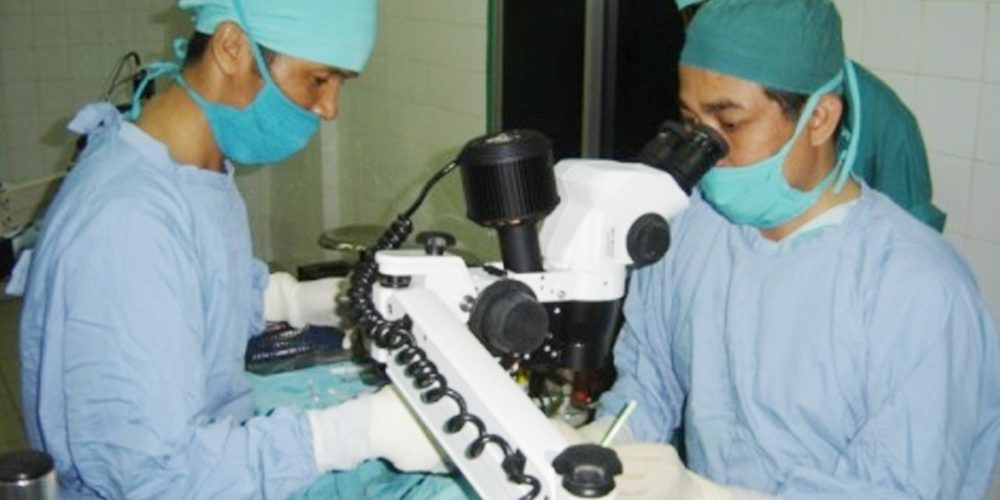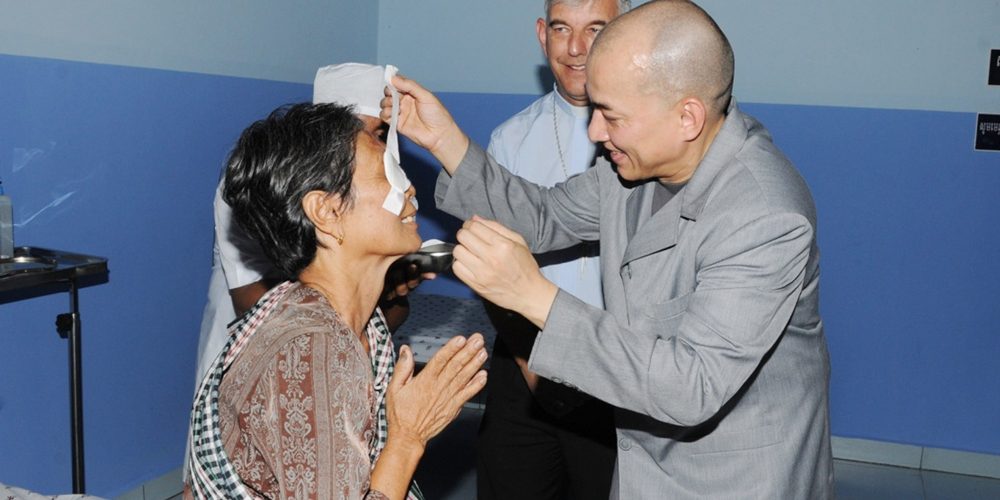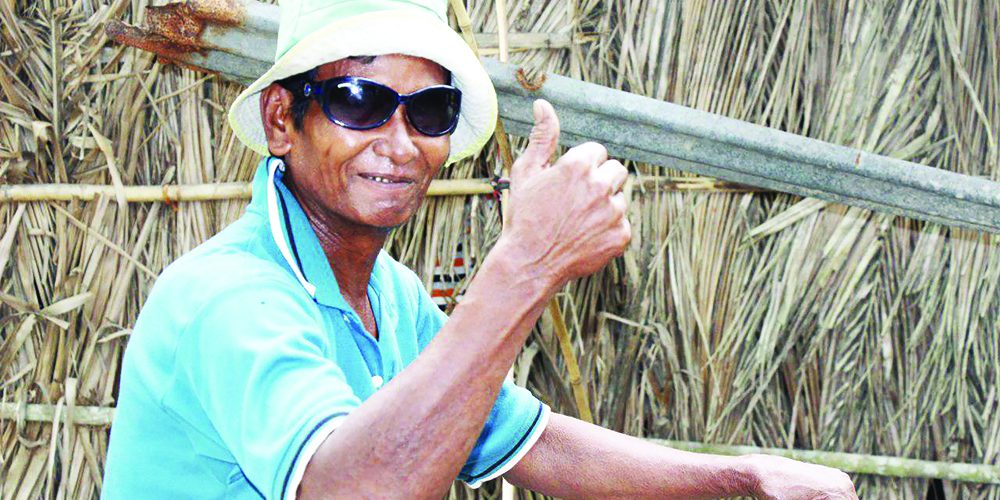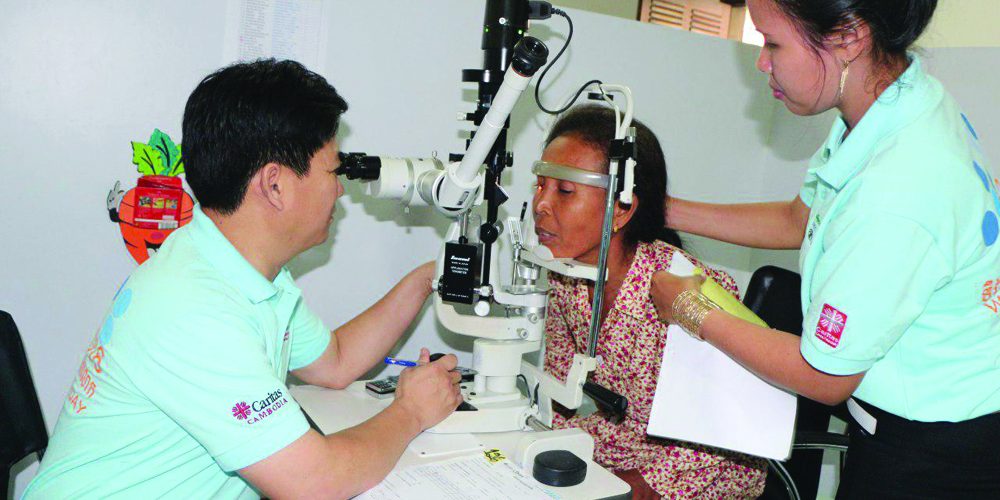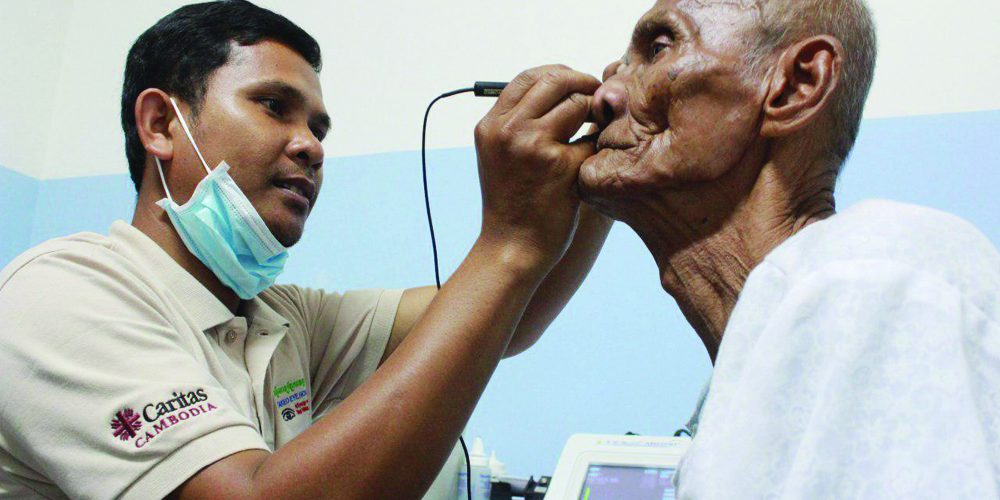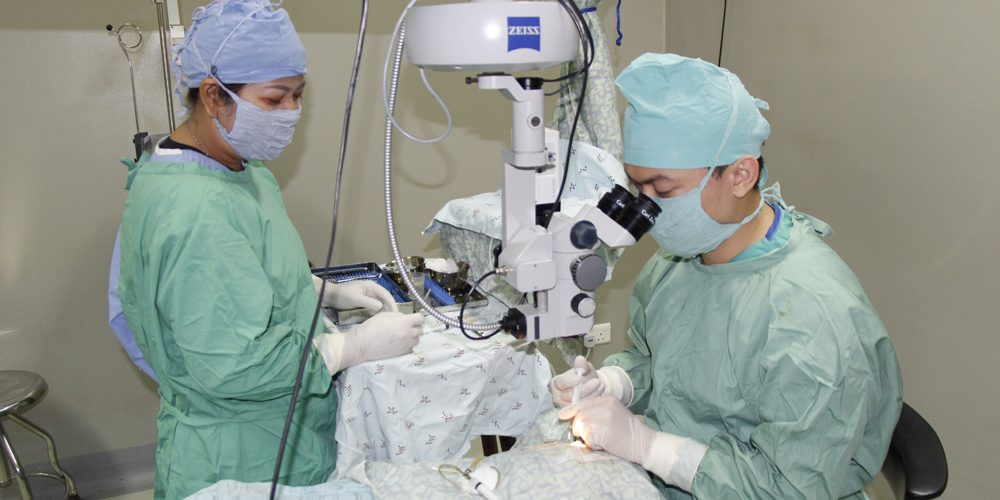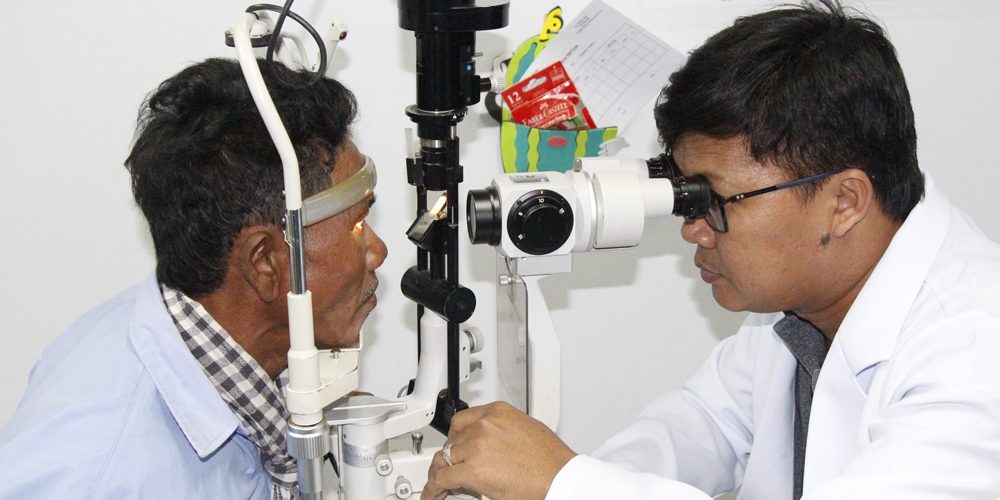1. Battambong Community Health Program
Caritas Cambodia in Battambong has ambition in empowerment of villages in the targeted villages to take accountability of mutual help for finding a feasible way and builds good cooperation with VHV (Village Health Volunteer) and VHC (Village Health Center) for improving health status of the poor and marginalized in their local village. Community Health Program is a new program of Caritas Cambodia in Battambong in 2007, which is focus on community based health activities through building good cooperation with the operational district of Battambong and with other NGOs in the working areas. 3 districts, 11 communes and 56 villages are our target group along with the population of 58,736 people.
Battambong Community Health Program aim to improve health status of our disadvantaged communities of Rattanak Mondul, Samlot, and Bovel-Monkol Borei district, through health center program and community based health activities with special emphasis on women and children. Our activities include organizing community health structure, village health support group and providing general education on the disease prevention. Further the program also provides support materials for safe drinking water and mosquito nets and others.
2. Kampong Thom Community Health Program
The Kampong Thom development program is composed of 3 programs: health program, rehabilitation program and community development program. These 3 programs are closely inter-related and the staff work together since they are complementary. At the request of the provincial health department (PHD), and with the support from Caritas Japan, Caritas Cambodia started health projects in Kampong Thom Province in the year 2000 to support the implementation of Communal health Centre in Kampong-Kou commune, according to the new district “District health coverage Plan” and to answer the health and development needs of the population of Kampong-Kou commune through Cambodian health system.
In what ways we reach our goal, there are some approaches have been counted as follow:
Capacity Building: District operation provides training to health center staff and village health volunteer.
Networking: The formation village development association is a part of importance. They shall have an interaction with this structure, because it is the powers that serve benefit to the poor in the target area.
Education Awareness: Caritas Cambodia prepares education campaign to the people and promoted health issue to the community by poster distribution which, for example, related to the benefit of using condom, consultation service treatment, prevention and transmission from one person to one another.
3. Siem Reap Community Health Program
HIV/AIDS Program
HIV/AIDs program has been designed in partnership with Provincial AIDS department taking into considerations the recommendations and lessons learned from the previous home care models in Phnom Penh.
Since 2001, Caritas has been supporting the public health system and community structures to provide Home Based Care HBC services and is now the largest provider of HBC services in Siem Reap. Caritas was also the first NGO in Siem Reap to facilitate the formation of People living with HIV/AIDs (PLHA) support groups.
Caritas is offering extensive expertise in Home Based Care including the ability to provide comprehensive services at a low cost per client; develops integrated and sustainable services linking community structures to health centers and referral hospital; and enables, over time, PLHA and their families to take greater responsibility for managing their health, social and economic situations.
Furthermore, Caritas plays an important role in strengthening the referral system (CoC) in order to ensure adherence to ARV treatment. Caritas is involved at all levels, from Provincial Aids Office (PAO) , Operational district ( OD) to Health Centers and communities, strengthening self-help groups, MMM network and other community initiatives to address the needs of PLHA, reducing stigma and discrimination, and enabling the greater involvement of people living with HIV & AIDS in community activities and service delivery.
From the beginning, Caritas has been able to provide Care and Support to over 1173 PLHA and their families, targeting 32 Health Centers and 396 villages in 3 ODs of Siem Reap Province. After a difficult experience of working with HC staff while PLHA were all dying from AIDS, Caritas re-started working with HC staff after the arrival of ARV and the HC staff showed more commitment.
By late 2008, 6 HBC Teams have been formed involving HC staff providing weekly visits to PLHA of their catchments area and involving PLHA Volunteers as well. There are already 16 PLHA SG who are meeting monthly, learning to care for themselves, saving and loaning money for income generating activities but their involvement is still very limited to their groups. There is not yet a network of these support groups.
Caritas has been also the first NGO to initiate and develop the Mondol Mit Obroum Mit-friends helping friends (MMM) at Siem Reap hospital and is still providing some support in partnership with CPN+ whose mandate is the MMM development and support. Caritas is also working in partnership with the MMM in Sothnikum.
These “MMM” start to be efficient at the hospital but not yet very much linked with the support groups in the communities except at Sothnikum where the link is well initiated.
The National AIDS Program under NCHADS Authority is now expanding the number of Voluntary Confidential Counseling and Testing (VCCT) sites (199 by Dec 2007) and ARV sites (45 in 19 provinces out of 24 provinces) with free ARV drug supplies and services delivery for the entire country.
NCHADS submitted a Strategic plan to GF with ARV first line for all people in need of ARV and has been approved up to 2015. The HBC component started to be taken into consideration with GF Round 7 with first support for the years 2009 and 2010.
Caritas Cambodia HBC program has been supported through out the years (2001-2008) by Caritas Switzerland and Caritas Germany and both are committed to long term support to Caritas Cambodia. They are our precious long standing supporting donors.
However, In March 2007, Caritas, at the request of NCHADS, made a joined proposal with CRS to the GFATM Round 7 to be part of the Country Program and get partly funded by the Global Fund. The proposal has been approved and we are expected to start working with NCHADS and GF late 2008, very likely in the last quarter of 2008.
This Round 7 should be continued through Round 8 up to 2015.
The GFATM Round 7 focus on specific objectives regarding 3 targeted diseases: AIDS, Tuberculosis and HIV/AIDS.
“HIV/AIDS-related mortality and morbidity is reduced, people are able to live longer and contribute positively to the development of Cambodian society through an empowerment process involving communities themselves”
3.1. Home Based Care:
Since 2001, and in partnership with the Ministry of Health, Caritas HBC Team (15 staff) in Siem Reap is providing home care and socio-economic support to more than 1469 People affected by HIV/AIDS and their families.
The coverage area is very large with 33 Health Centres, 9 administrative districts, 62 communes and 489 villages.
The care and support consists in identifying the new cases in the community, in cooperation with the community health volunteers, providing counselling and emotional support, helping with transportation to the clinic for ARV treatment, providing food support to vulnerable families and PLHA with very severe malnutrition, educating on drug adherence and self-care, providing guidance and support to OVC (orphans and vulnerable children of HIV/AIDS families or orphans) in order to ensure schooling and education to children.
3.2. Self-Help Groups:
hivpro1Once people are on treatment and their health stabilized, the people are encouraged to join Self Help Groups to meet once a month, discuss their problems and concerns, start saving and credit activities together in order to make income and sustain their families. Caritas provide support to 14 SHG through group formation, animation, education on health and HIV/AIDS issues, rights of PLHA and any issues they are concerned about.
3.3. Livelihood program:
Caritas has a large “Livelihood program” in order to help PLHA to re-integrate the society and have enough income to sustain themselves and able to send their children to school. There is a saving and credit program for individuals in need of capital to start IGA and there is also saving and credit through SHG. T
hivpro2
here are about 70 loans provided per year to individuals and 14 SHG with an average of 10 to 15 members each. Loans through SHG benefit from formal training and on-the job practice to be able to get new skills and generate enough income for the family.
3.4. The last project is a “drop in Center”
to facilitate access to PLHA living far away from the health services so that they can get free accommodation at the Center. This Center is also a “Crisis Center” for PLHA women in crisis, abandoned women or destitute who need a place for “healing”, place for care and support until their re-integration into the society. In 2007, 251 PLHAhivpro3 benefited from that Center

